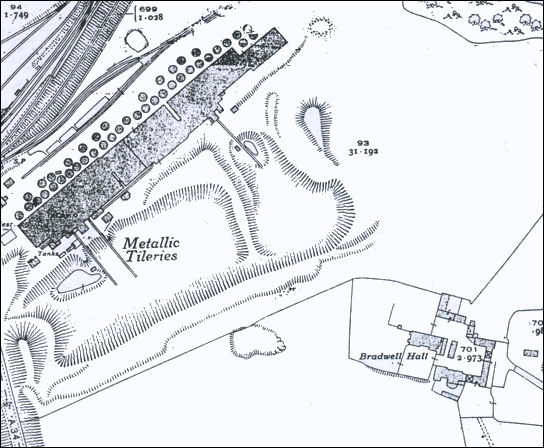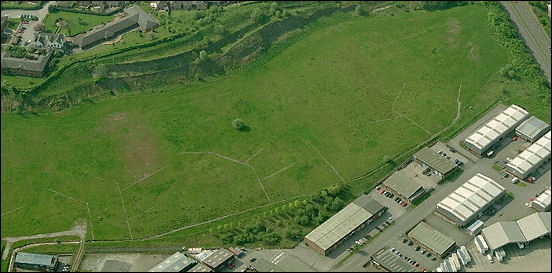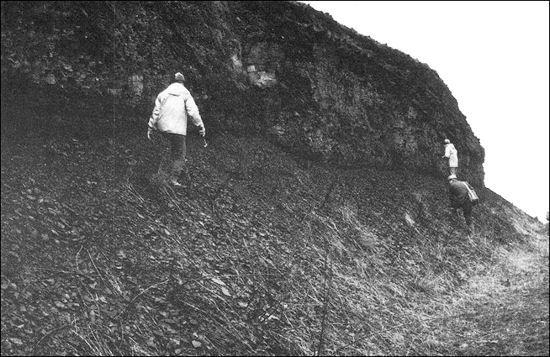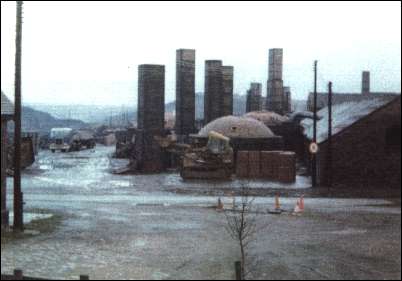|
Metallic Tileries:
Around 1900 J.T. and
W. Rowley opened a brick and tile factory north west of Bradwell
Hall by the Talke Road (now A34). The works rapidly expanded and
within 15 years had more than doubled in size and the clay pit
occupied a substantial area below the hall.

1937 OS map showing
the Metallic Tileries
Now a Site of Special Scientific
Interest (SSSI)
This is the only known site in the
North Staffordshire Coalfield showing the unconformable contact
between the Etruria Formation red-beds and the black shales and
sandstones of the Newcastle Formation (Middle Carboniferous). Lake
sediments at the contact between the formations contain a most
unusual fauna of non-marine bivalves, ostracods, fish and annelid
worms, and a unique non-marine algal flora. The Etruria Formation
here yields a fauna which appears to agree with the Anthraconauta
phillipsi Biozone. This indicates that it is markedly younger
than the red-beds of the South Staffordshire and Warwickshire
coalfields. This demonstration that these red-bed formations become
younger towards the north has important implications for
understanding the geography of Britain during the middle
Carboniferous Period, and the gradually increasing aridity of the
climate at that time. Metallic Tileries is therefore a key site for
British Carboniferous geology.

Aerial view of the Metallic
Tileries site - Bradwell
running along the top is the outcrop of the marl and coal
formation
top left is Bradwell Hall, incorporated in the nursing home
to the right is the A34 Talk Road and bottom right corner is
Parkhouse Industrial Estate East

Contact between Newcastle
and Etruria formations at Metallic Tileries
Photo: C.J. Cleal

Metallic Tileries
photo: 1977 Ian Bailey

smoke from a brickworks beehive Kiln
photo: 1956

|
![]()
![]()
![]()